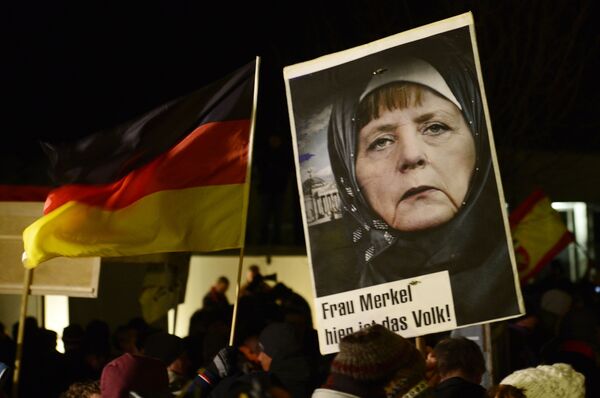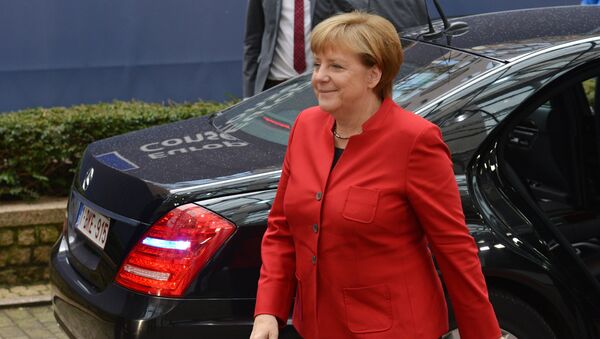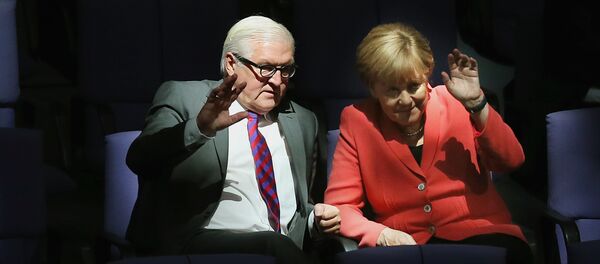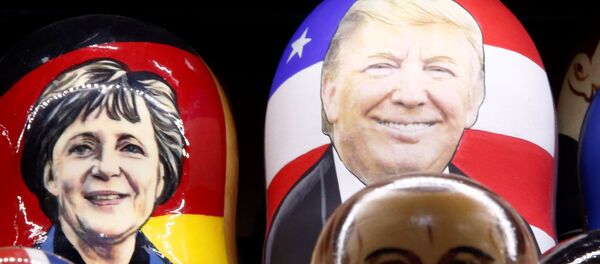His article titled "The fourth term of Angela Merkel: when one does not want to sum up the results" came after a member of the Christian Democratic Union party, led by Merkel, said that she will be seeking a fourth term as German Chancellor in the federal elections set to be held next year.
"She will run for chancellor … She is absolutely determined, willing, and ready to contribute to strengthen the international liberal order. But we can't see the chancellor or Germany as the last man standing," Norbert Roettgen told CNN in an interview.

Ardayev recalled in this regard that so far, only Helmut Kohl has managed to serve four terms as head of the German Federal Government. He was in office between 1982 to 1998, adding significantly to the process of European unification and the end of the Cold War.
Konrad Adenauer served three and a half terms as German Chancellor, and in 1963 he voluntarily resigned due the fact that he was 87 at the time. He stepped down at the height of his fame, becoming the political and economic architect of his country.
"If Merkel's plans come true, she will manage to catch up with these politicians concerning the length of time in power. But it remains to be seen whether she will leave behind the same trail of glory and recognition," Ardayev said, referring to Kohl and Adenauer.
Ardayev quoted president of the Center for Strategic Communications Dmitry Abzalov as saying that Merkel's reelection is rather problematic.
First and foremost, differences between the Christian Democratic Union (CDU) party, the Christian Social Union (CSU) party and the Social Democratic Party of Germany (SPD) show no sign of abating, Ardayev said.
In this vein, he cited Abzalov as saying that Merkel's radical anti-Russian policy was not supported by the CDU/CSU coalition partners, and Foreign Minister Frank-Walter Steinmeier has repeatedly criticized his government's political line to further deteriorate relations with Moscow.
"The SPD's stance on the rapprochement with Russia enjoys in the growing electoral support in Germany, and the future parliamentary elections may see the situation when the CDU/CSU bloc rather than the SPD becomes a 'junior partner' in the coalition. It means it is the Social Democrats who will nominate Merkel's candidacy," Abzalov said.
Ardayev also quoted Alexander Orlov, head of the Institute of International Studies with the Russian Foreign Ministry, as saying that Merkel's intention to extend her tenure as Chancellor can be attributed to the fact that she is unwilling to recognize the results of her 12-year work in office.
These results do not look particularly impressive, something that is first of all concerned by Merkel's plummeting popularity ratings in Germany.
"Like many liberals, Angela Merkel does not want to admit her mistakes and defeat. Instead, she is looking to stay in the Chancellor's chair, hoping that she will manage to somehow improve her political image," says Alexander Orlov.
Abzalov, for his part, believes that the peculiarity of the current Western political landscape is that the future head of the German government may play the role of a full-fledged European leader without counting on Washington which used to call the shots.
"Merkel and Hollande, in fact, remain the only bulwark of the European Union, and the question is whether they will cope with such a burden," he said.
Ardayev, for his part, referred to the spate of political changes that are now under way both in in the United States and Europe.
"And Angela Merkel, preparing for the fourth time to be elected as Federal Chancellor, is carrying the baggage of old approaches to resolving the migration crisis, the deterioration of ties with Moscow and the situation in Greece, which marked the beginning of the split in the EU," he pointed out.
The next German federal elections are set to be held between August 27 and October 22, 2017.
Merkel, first appointed as chancellor in November 2005, became the first female chancellor in the history of the country. Following the 2009 and 2013 federal elections, Merkel was reappointed as the chancellor.





